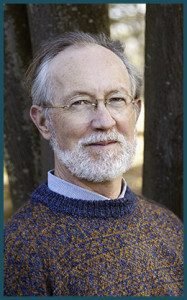by Suzanne Modigliani, LICSW, CMC – Aging Life Care Association™ Member and Fellow of the Leadership Academy
Taking a Closer Look at the Philosophy of “Slow Medicine” and the Role of the Aging Life Care™ Manager
Aging adults and their family members often find themselves overwhelmed by options and choices for their medical care. It can feel as though there is always another test, medication or procedure to cure the ills of aging. Many treatments do improve things, but some can feel as though they are making life worse. Families may be grateful to hear of the concept of “Slow Medicine,” developed by Dr. Dennis McCullough of Dartmouth Medical School.
 Dr. Dennis McCullough will discuss the philosophy of Slow Medicine during a special ALCA webinar on Tuesday, August 11, 2015.
Dr. Dennis McCullough will discuss the philosophy of Slow Medicine during a special ALCA webinar on Tuesday, August 11, 2015.
The Aging Life Care Association will host a special webinar by Dr. MucCullough on Tuesday, August 11, 2015, at 4 pm ET. The goal of this webinar is to provide Aging Life Care Professionals™ with approaches and tools for helping families and elders understand the complex relationships between overall care and medical care. Participants will be able to identify the stations of an elder’s and family’s journey; critique medical practice, including myths around elder care, and share approaches for engaging complex situations.
“Slow Medicine” takes into account that elders in their later years have a different set of issues and vulnerabilities than the “young old”. The philosophy involves really slowing down the decision-making and keeping in mind the unique circumstances of a particular elder. Aging Life Care managers get to know their clients very well and often act as a bridge in such decision making, ensuring that the individual, the larger family system, and professionals are communicating. Honoring the elder’s value system is important and understanding the consequences of each decision means asking the right questions. At this stage in life, many value their quality of life above anything else.
Every medical event is not a crisis and a wait-and-see approach may be the best approach in certain situations. Trips to the emergency room are often overwhelming, disorienting and frightening. The cumulative effect of multiple medications, surgeries, and tests can impact quality of life for those over the age of 80.
Relationships developed between family and elder, elder and Aging Life Care™ manager, client system and medical provider, will serve everyone well in the long run because people will know their values and expectations; thus making decision making easier.
Today, a modern elder may see many specialists. Aging Life Care managers work to ensure there is communication among all specialists; and that each specialist is aware of the medications prescribed and that these are regularly reviewed. Sometimes medications are prescribed to treat side effects of other medication; so having an advocate in the medical maze is vital to avoid unnecessary or over medication.
Slow Medicine does not mean forsaking treatment, it means carefully considering treatment and its full implications. Comfort means different things for each elder. Small problems can and should be caught early. Aging Life Care managers can discuss normal aging and what expectations for managing symptoms can look like. They are partners with elders and families for the long haul, understanding that there is indeed an irreversible decline in the very old.
For a complete discussion of Slow Medicine, read Dr. McCullough’s book, My Mother, Your Mother, and register to attend Dr. McCullough’s upcoming webinar.
About the author: Suzanne Modigliani, LICSW, CMC is an Aging Life Care specialist in Brookline, MA who works with families to find solutions to complicated elder care problems. She has been a leader in the Aging Life Care Association and quoted extensively in the media as seen on her website modiglianigeriatrics.com.
This blog is for informational purposes only and does not constitute, nor is it intended to be a substitute for, professional advice, diagnosis, or treatment. Information on this blog does not necessarily reflect official positions of the Aging Life Care Association™ and is provided “as is” without warranty. Always consult with a qualified professional with any particular questions you may have regarding your or a family member’s needs.